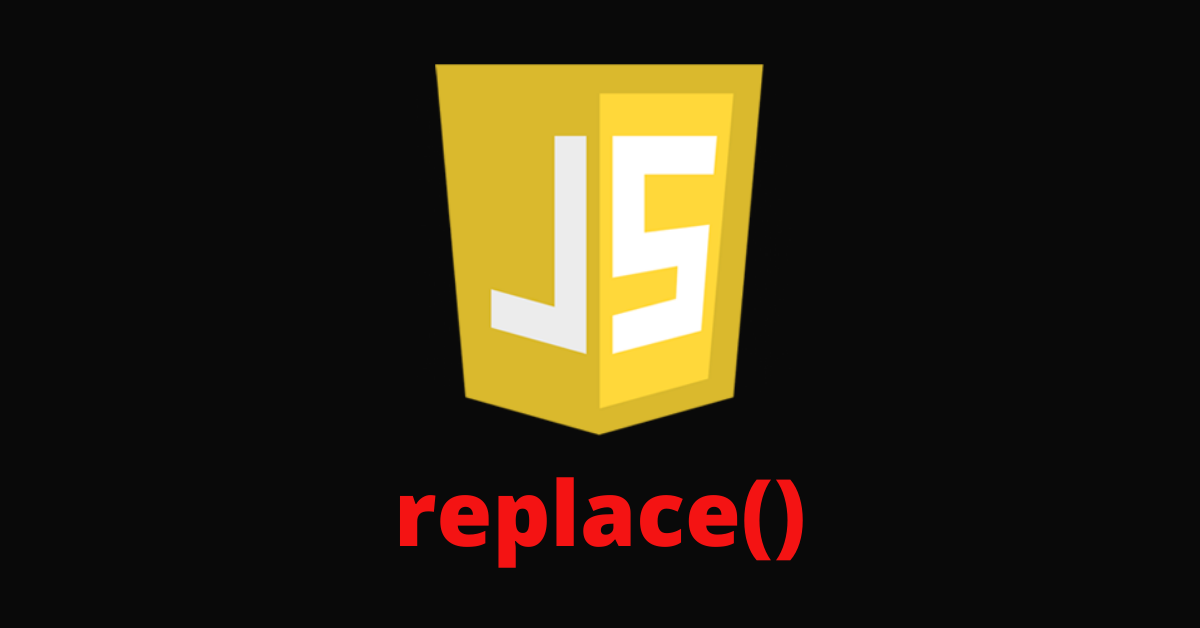The String.prototype.replace() method searches for the first occurrence of a string and replaces it with the specified string. It does this without mutating the original string.
This method works for regular expressions, too, so the item you're searching for may be expressed as a regular expression.
The value to return as the replaced value may be expressed as a string or function.
Basic Syntax of the String.prototype.replace() Method
const variable = variable.replace("stringToReplace", "expectedString");
You use the replace() method by:
- assigning the initial string or strings to a variable
- declaring another variable
- for the value of the new variable, prepending the new variable name with the replace() method
- Comma-separating the string you want to replace and the expected string in the brackets
Examples of the String.prototype.replace() Method
A basic example would look like this:
const coding = "I learned how to code from TV";
const replacedString = coding.replace("TV", "freeCodeCamp");
console.log(replacedString); // Result: I learned how to code from freeCodeCamp
In the example above:
- I declared a variable named coding and assigned it the string “
I learned how to code from TV” - I declared another variable named
replacedString - For the value of the
replacedStringvariable, I brought in thereplace()method and specified that I wanted to replace “TV” from the initial variable with “freeCodeCamp”.
Below is an example demonstrating that the initial string is never mutated (changed) by the replace() method:
const coding = "I learned how to code from TV";
const replacedString = coding.replace("TV", "freeCodeCamp");
console.log(replacedString); // Result: I learned how to code from freeCodeCamp
console.log(coding); // Result: I learned how to code from TV
In the example below, I used regular expressions to search for the text that matches “TV” and replaced it with “freeCodeCamp”:
const coding = "I learned how to code from TV";
const replacedString = coding.replace(/TV/, "freeCodeCamp");
console.log(replacedString); // Result: I learned how to code from freeCodeCamp
Since the replace() method works for the first occurrence of some text in a string only, what do you do if you want to replace all occurrences of a word with another word in a string? You can use the replaceAll() method.
How to Use the replaceAll() Method
A string method that is slightly similar to the replace() method is the replaceAll() method.
This method replaces all occurrences of a certain word in a string.
Example of the replaceAll() Method
const coding = "I learned how to code from TV. TV remains in my heart for life.";
const replacedString = coding.replaceAll("TV", "freeCodeCamp");
console.log(replacedString); // Result: I learned how to code from freeCodeCamp. freeCodeCamp remains in my heart for life.
Every occurrence of “TV” has been replaced with “freeCodeCamp” courtesy of the replaceAll() method.
With the original replace() method, you can achieve what replaceAll() does by using regular expressions to search for every occurrence of a certain word in a string and replacing it with another word.
const coding = "I learned how to code from TV. TV remains in my heart for life.";
const replacedString = coding.replace(/TV/g, "freeCodeCamp");
console.log(replacedString); // Result: I learned how to code from freeCodeCamp. freeCodeCamp remains in my heart for life.
I was able to search for every word that matches “TV” with the g flag of a regular expression and replace it with “freeCodeCamp”.
How to Pass a Function to the replace() Method
As I said before, you can express the value you want to return as the replaced value as a function.
In the example below, I converted the title of this article to a URL slug with the replace method:
const articleTitle = "JavaScript Replace – How to Use the String.prototype.replace() Method";
const slugifyArticleTitle = articleTitle.toLowerCase().replace(/ /g, function (article) {
return article.split(" ").join("-");
});
console.log(slugifyArticleTitle); //Result: javascript-replace-–-how-to-use-the-string.prototype.replace()-method
In the script above:
- I declared a variable named
articleTitleand assigned the title of this article - I declared another variable named
slugifyArticleTitleand converted the title of the article to lowercase letters with thetoLowerCase()method - I brought in the
replace()method and searched for every white space with/ /g - I then passed a function to the
replace()method, and assigned it a parameter ofarticle. This parameter refers to the string (title of the article) converted to lowercase letters - Inside the function, I returned that I’m splitting the article title anywhere there is a white space. This was done with the
split()method. - After splitting the article title everywhere there is whitespace, I used the
join()method to join the individual letters in the string with a hyphen.
Conclusion
The String.prototype.replace() method is a powerful string method with which you can get a lot of things done while working with strings in JavaScript.
Apart from the String.prototype.replace() method, I also showed you how to use the String.prototype.replaceAll() method – a hybrid of String.prototype.replace() method.
You should be careful with the String.prototype.replaceAll() method because it’s not yet supported by some browsers. Instead of using replaceAll(), I also showed you how you can achieve the same thing it does by using regular expressions to search for all values in a particular string.
If you find this article helpful, don’t hesitate to share it with your friends and family.
Thank you for reading.

